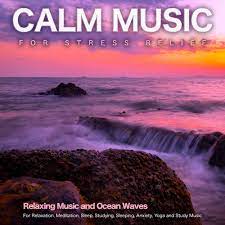Sleep Music: The Soothing Sounds for a Restful Night
In today’s fast-paced world, getting a good night’s sleep has become more challenging than ever. Stress, anxiety, and the constant bombardment of information can often leave us tossing and turning in bed, desperately seeking a way to quiet our racing minds. This is where sleep music comes to the rescue.
Sleep music refers to a genre of music specifically designed to promote relaxation and induce sleep. It typically incorporates calming melodies, gentle rhythms, and soothing sounds that help create an atmosphere conducive to restful sleep. From soft piano compositions to tranquil nature sounds, sleep music offers a variety of options tailored to individual preferences.
One of the primary benefits of sleep music is its ability to calm the mind and reduce stress levels. The serene melodies and harmonies have a profound impact on our nervous system, triggering the release of feel-good hormones like serotonin and dopamine. As we listen to sleep music, our heart rate slows down, blood pressure decreases, and muscle tension eases away. These physiological changes pave the way for a peaceful transition into slumber.
Moreover, sleep music acts as a powerful tool for blocking out external disturbances that may disrupt our sleep patterns. Whether it’s noisy neighbors, traffic sounds, or even our own racing thoughts, these distractions can prevent us from achieving deep and restorative sleep. By providing a consistent background noise that masks these disturbances, sleep music creates an environment that promotes uninterrupted rest.
Another fascinating aspect of sleep music is its ability to synchronize brainwaves with the rhythm of the music itself. Deep relaxation induces slower brainwave patterns associated with deep stages of sleep such as NREM (non-rapid eye movement) and REM (rapid eye movement) sleep. Sleep music helps guide our brainwaves into these desired states by gradually slowing down its frequency through repetitive patterns or gradual tempo changes.
It’s important to note that not all types of music are suitable for sleep. While sleep music aims to relax and calm, certain genres, such as upbeat pop or heavy metal, may have the opposite effect. It’s crucial to choose music that aligns with your personal preferences and promotes a sense of tranquility.
With the rise of digital streaming platforms, access to sleep music has become more convenient than ever before. There are numerous curated playlists and dedicated channels available that cater specifically to sleep and relaxation. These platforms offer a vast library of sleep-inducing tracks, allowing you to find the perfect soundscape for your bedtime routine.
Incorporating sleep music into your nightly ritual can greatly enhance the quality of your sleep and overall well-being. Whether you’re struggling with insomnia, looking to reduce stress, or simply seeking a more peaceful slumber, sleep music can be a valuable tool in your sleep hygiene toolkit.
So tonight, as you prepare to drift off into dreamland, consider embracing the soothing sounds of sleep music. Let its gentle melodies transport you to a place of tranquility and serenity, guiding you towards a restful night’s sleep that leaves you feeling refreshed and rejuvenated come morning.
7 Frequently Asked Questions About Sleep Music: Answered!
- What type of music is best for sleeping?
- Does listening to sleep music actually help you sleep better?
- How long should I listen to sleep music for?
- What are the benefits of listening to sleep music?
- Are there any risks associated with using sleep music?
- Is there a specific genre of music that is best for sleeping?
- Is it safe to use headphones while listening to sleep music?
What type of music is best for sleeping?
When it comes to choosing the best type of music for sleeping, it’s important to consider individual preferences and what promotes relaxation for you personally. That being said, there are several genres and styles of music that are commonly known for their calming and sleep-inducing qualities. Here are a few suggestions:
- Ambient Music: This genre typically consists of atmospheric sounds, soothing synthesizers, and gentle melodies. Ambient music creates a serene and tranquil atmosphere that can help relax the mind and prepare the body for sleep.
- Classical Music: Classical compositions by composers such as Mozart, Bach, or Debussy are often recommended for promoting relaxation and sleep. The harmonies and rhythms in classical music have been shown to reduce stress levels and induce a sense of calm.
- Instrumental Music: Instrumental tracks without lyrics can be beneficial as they eliminate the potential distraction of words or vocals. Genres like solo piano, acoustic guitar, or instrumental jazz can provide a soothing background without engaging the mind too much.
- Nature Sounds: Many people find nature sounds incredibly relaxing for sleep. The sound of raindrops, ocean waves, forest ambiance, or gentle bird chirping can create a peaceful environment that mimics being in nature.
- Binaural Beats: Binaural beats involve playing two slightly different frequencies in each ear simultaneously. This technique has been associated with promoting relaxation and deep sleep by helping synchronize brainwaves to desired states.
Ultimately, the best type of music for sleeping varies from person to person. It’s essential to experiment with different genres and styles to find what works best for you individually. Remember that personal preference plays a significant role in determining which sounds help you relax and drift off into dreamland more easily.
Does listening to sleep music actually help you sleep better?
Listening to sleep music can indeed help you sleep better. Here are a few reasons why:
- Relaxation and Stress Reduction: Sleep music is specifically designed to create a calming and soothing atmosphere. The gentle melodies, soft rhythms, and tranquil sounds help relax the mind and body, reducing stress and anxiety that may hinder sleep.
- Masking External Disturbances: Sleep music acts as a consistent background noise that masks external disturbances such as traffic sounds or noisy neighbors. By providing a steady and predictable sound, it helps drown out disruptive noises that could disrupt your sleep.
- Creating a Sleep Routine: Incorporating sleep music into your bedtime routine can signal to your brain that it’s time to unwind and prepare for sleep. Consistency in using sleep music helps establish a routine, making it easier for your body to recognize when it’s time to relax and fall asleep.
- Brainwave Synchronization: Sleep music often incorporates repetitive patterns or gradual tempo changes that can help synchronize brainwaves with the rhythm of the music itself. This synchronization encourages the brain to enter deeper stages of sleep associated with restorative rest.
- Reducing Racing Thoughts: Many people struggle with racing thoughts or an overactive mind when trying to fall asleep. Sleep music provides a focal point for the mind, redirecting attention away from intrusive thoughts and promoting relaxation.
It’s important to note that the effectiveness of sleep music may vary from person to person. Different individuals have unique preferences when it comes to sounds and melodies that induce relaxation. It’s crucial to experiment with different types of sleep music until you find what works best for you.
Additionally, incorporating other healthy sleep habits alongside listening to sleep music can further enhance its effectiveness. Practices like maintaining a consistent bedtime routine, creating a comfortable sleeping environment, limiting exposure to screens before bed, and practicing relaxation techniques can all contribute to better quality sleep.
In summary, while there is no one-size-fits-all solution for better sleep, sleep music can be a valuable tool in promoting relaxation, reducing stress, and creating a conducive environment for restful sleep.
How long should I listen to sleep music for?
The duration for which you should listen to sleep music can vary depending on personal preference and effectiveness. Generally, it is recommended to listen to sleep music for at least 30 minutes to an hour before bedtime. This allows your mind and body to gradually relax and enter a state of calmness.
However, some individuals may find that they need more or less time to unwind and fall asleep. It’s important to listen to your own body and adjust accordingly. If you find that you’re still feeling alert after an hour of listening, you may want to extend the duration. On the other hand, if you tend to fall asleep quickly, a shorter period of listening may be sufficient.
Additionally, some people prefer playing sleep music throughout the entire night on a low volume setting. This continuous background sound can help mask any disruptive noises and maintain a soothing ambiance while you sleep. However, make sure the volume is low enough not to disturb your sleep patterns or cause discomfort.
Remember that everyone’s sleep needs are different, so it’s essential to experiment and find what works best for you. Pay attention to how your body responds and adjust the duration accordingly until you establish a routine that promotes restful sleep.
What are the benefits of listening to sleep music?
Listening to sleep music offers a range of benefits that contribute to a better night’s sleep and overall well-being. Here are some key advantages:
- Relaxation and Stress Reduction: Sleep music is specifically designed to promote relaxation, helping to calm the mind and reduce stress levels. The soothing melodies, gentle rhythms, and tranquil sounds create an atmosphere conducive to unwinding and letting go of daily worries.
- Improved Sleep Quality: Sleep music helps create a peaceful environment that supports uninterrupted sleep. By masking external disturbances such as noise from neighbors or traffic, it promotes a deeper and more restorative slumber.
- Reduced Anxiety: Many individuals struggle with anxiety that keeps them awake at night. Sleep music can help alleviate anxiety symptoms by providing a soothing and comforting background noise, helping to quiet racing thoughts and induce a sense of calmness.
- Enhanced Sleep Routine: Incorporating sleep music into your bedtime routine can signal to your brain that it’s time to wind down and prepare for sleep. Consistently using sleep music as part of your routine can establish a positive association with relaxation and promote more consistent sleep patterns.
- Brainwave Synchronization: Certain types of sleep music are designed to synchronize brainwaves with its rhythm, gradually slowing down the frequency of brainwave patterns associated with deep stages of sleep. This synchronization can facilitate easier entry into deep sleep states, improving overall sleep quality.
- Improved Focus and Productivity: Getting enough quality sleep is crucial for cognitive function, focus, and productivity during waking hours. By promoting better sleep quality, listening to sleep music can enhance daytime alertness, concentration, and overall performance.
- Relaxing Wind-Down Ritual: Engaging in a relaxing wind-down ritual before bed is essential for preparing the mind and body for restful sleep. Listening to sleep music can serve as an integral part of this ritual, signaling the transition from wakefulness to relaxation mode.
- Alternative to Medication: For individuals who prefer natural sleep aids, sleep music can be a viable alternative to medication. It offers a non-invasive, drug-free approach to promoting relaxation and improving sleep quality.
Remember, the benefits of sleep music may vary from person to person. It’s important to explore different types of sleep music and find what works best for you in terms of personal preferences and relaxation response. Creating a peaceful sleep environment tailored to your needs can significantly contribute to a more restful and rejuvenating sleep experience.
Are there any risks associated with using sleep music?
Using sleep music generally poses minimal risks. However, it’s important to be aware of a few considerations:
- Volume: Listening to sleep music at excessively high volumes can potentially damage your hearing and have long-term consequences. It’s crucial to keep the volume at a comfortable level that allows you to relax without causing any discomfort or harm.
- Dependency: While sleep music can be a helpful aid for falling asleep, it’s essential not to become overly reliant on it. Developing a dependency on external stimuli for sleep might make it challenging to fall asleep without them in the long run. It’s advisable to use sleep music as a tool alongside other healthy sleep habits and gradually wean off its use if desired.
- Personal Preferences: Sleep music is subjective, and what works for one person may not work for another. It’s important to find the type of music that resonates with you personally and promotes relaxation. Experimenting with different genres or styles can help you discover what suits you best.
- Distraction: While sleep music is intended to mask external disturbances, it’s possible that certain individuals may find the sounds distracting rather than soothing. If you find yourself focusing too much on the music or becoming more alert instead of relaxed, it may be beneficial to explore other methods of promoting sleep.
- Content Selection: Be mindful of the content within the sleep music you choose. Some tracks may incorporate sudden loud noises or unexpected elements that could startle or disturb your sleep. It’s advisable to preview or create playlists with tracks that consistently maintain a calm and soothing ambiance.
As with any new addition to your bedtime routine, paying attention to your own comfort and preferences is key when using sleep music. If you experience any adverse effects or difficulties falling asleep despite using sleep music, it may be worth reassessing its inclusion in your routine or seeking guidance from a healthcare professional.
Remember, everyone’s response to sleep aids can vary, so it’s important to find what works best for you individually and prioritize your overall sleep hygiene.
Is there a specific genre of music that is best for sleeping?
When it comes to sleep music, there isn’t a one-size-fits-all answer to which genre is best for sleeping. The choice of music depends on personal preferences and what helps an individual relax and unwind. That being said, certain genres are commonly associated with promoting relaxation and sleep. Here are a few genres that many people find soothing for bedtime:
- Ambient Music: This genre often features atmospheric sounds, soft synthesizers, and long, sustained notes. Ambient music creates a calming backdrop that can help ease the mind into a state of relaxation.
- Classical Music: Known for its soothing melodies and gentle compositions, classical music has been favored by many as a relaxing choice before bedtime. Composers like Mozart, Bach, and Debussy have created timeless pieces that can help induce a sense of tranquility.
- Nature Sounds: Many people find the sounds of nature, such as raindrops falling or waves crashing on the shore, incredibly calming. Nature sounds can create a peaceful environment that mimics the outdoors and promotes relaxation.
- Instrumental Music: Instrumental music without lyrics allows the mind to focus on the melody and rhythm without distraction. Genres like instrumental piano, guitar, or flute can be particularly soothing for bedtime listening.
- Meditation or New Age Music: These genres are specifically designed to induce relaxation and promote mindfulness. They often incorporate repetitive patterns, gentle rhythms, and serene tones that help calm the mind.
Ultimately, it’s essential to experiment with different genres and styles of music to find what works best for you personally. Some individuals may find comfort in one particular genre while others prefer a combination of different styles or even white noise machines or ASMR (Autonomous Sensory Meridian Response) recordings.
Remember that creating a relaxing sleep environment involves more than just music selection; factors like lighting, temperature, and overall sleep hygiene practices also play crucial roles in achieving restful sleep.
Is it safe to use headphones while listening to sleep music?
Using headphones while listening to sleep music can be safe if certain precautions are taken. Here are some considerations to ensure a safe and comfortable experience:
- Choose comfortable headphones: Opt for lightweight and comfortable headphones that won’t cause discomfort or pressure on your ears during sleep. Over-ear or noise-canceling headphones can be a good choice as they provide better sound isolation.
- Use wireless or tangle-free options: Wired headphones can potentially pose a risk of entanglement during sleep, especially if you tend to move around a lot. Consider using wireless Bluetooth headphones or those with tangle-free cords to minimize any hazards.
- Set volume at a safe level: It’s crucial to keep the volume at an appropriate level to protect your hearing. Excessive volume, especially over extended periods, can lead to hearing damage. Follow the recommended guidelines for safe listening levels and avoid turning up the volume too high.
- Take breaks: If you plan on using headphones for an extended period, it’s essential to take regular breaks to give your ears some rest. Continuous use of headphones can cause discomfort or irritation in the ear area.
- Be aware of your surroundings: When using headphones while sleeping, it’s important to remain aware of your surroundings, especially if you live alone or need to be alert for any potential emergencies during the night. Consider using open-back or noise-canceling features that allow you to hear ambient sounds while still enjoying the benefits of sleep music.
- Consult with a healthcare professional if necessary: If you have any pre-existing ear conditions or concerns about using headphones during sleep, it’s advisable to consult with a healthcare professional who can provide personalized guidance based on your specific situation.
Remember that everyone’s preferences and needs may vary when it comes to using headphones during sleep. It’s important to prioritize comfort, safety, and personal well-being when deciding whether or not to use them while listening to sleep music at night.



